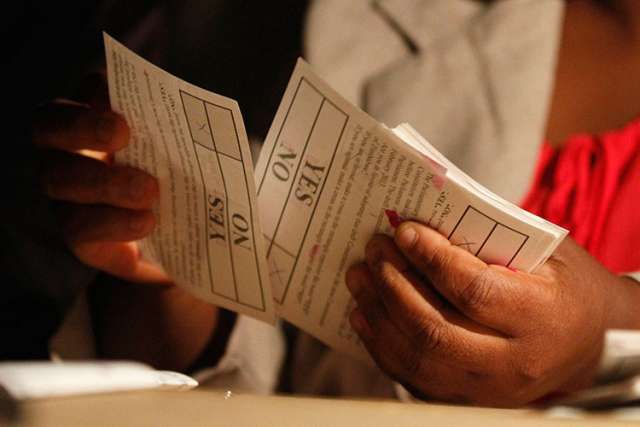At least, that’s the advice of Catholic Charities of the Archdiocese of Toronto. In advance of the June 12 Ontario election it has published an election guide that suggests voters become informed and engaged on issues that affect the most vulnerable members of society. The guide also provides suggested questions and a report card so voters can rate the candidates.
It recommends using a checklist to help assess candidates encountered at doorsteps and all-candidate meetings, or when discussing issues with friends.
“We hope the election guide will help make people more aware of significant issues that affect so many of the most vulnerable in our communities,” said Jack Panozzo, Program Manager of Social Justice and Advocacy for Catholic Charities. “These may not be issues that would come immediately to mind for voters, but they are issues that affect everyone — poverty, homelessness and basic human dignity.”
The guide offers several suggested questions in areas of concern for Catholic voters. It starts with questions regarding a candidate’s views on respect-forlife issues, particularly abortion and euthanasia, and then covers a broad range of topics, including poverty reduction, housing, health care, family life and several other social issues.
Catholic Charities and its 27 member agencies have provided support and services to the needy for more than a century. The nonpartisan election guide draws on consultations with those agencies and is based on Catholic social teaching that “challenges us to build a more just society and safeguard the dignity of every person,” said the guide.
For instance, the guide encourages voters to ask candidates how they will address poverty, or if they support an increase in the minimum wage. What is a candidate’s position on affordable housing? On funding families with special needs children? On serving the needs of seniors? On funding mental health and addiction programs?
“The guide is definitely nonpartisan,” Panozzo said. “Catholic Charities’ goal is to make people aware of issues that will affect vulnerable families, children, teenage parents, homeless youth and isolated seniors and those with physical and developmental disabilities.”
To download the guide, visit the news and events page at www.catholiccharitiestor.org.


